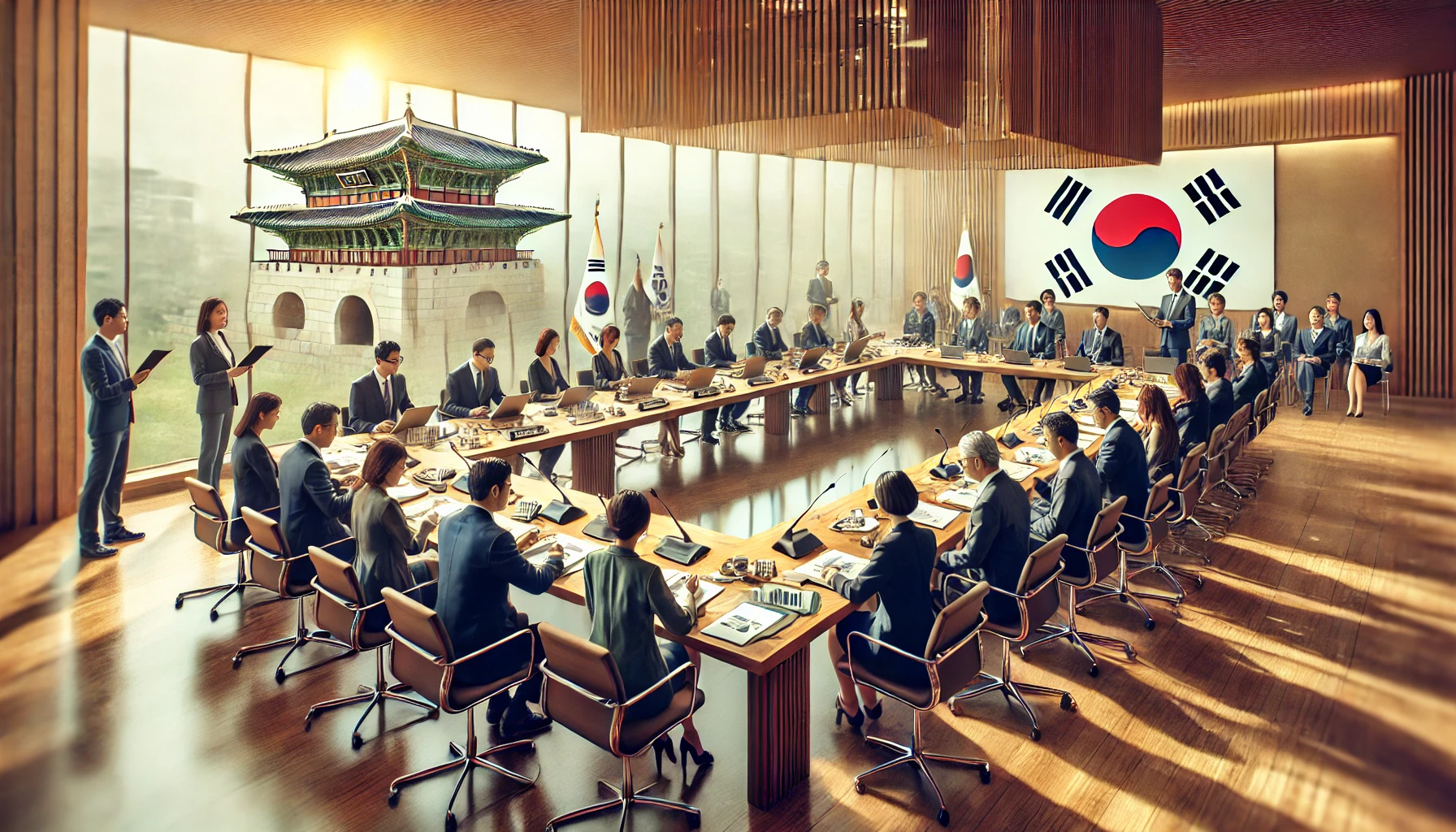- Product Explore >
- Pricing
-
Insights
Insights
Explore >
Up to top (this text gets replaced by JS) Up a level (this text gets replaced by JS)
- Discover
- Press Centre
- Articles
- Research and Guides
- Events
- FAQs
- A strategic guide for navigating legal entity compliance in 2025 and beyond
- Remain Legally Compliant in 2025
- Industry Focus Explore >
- Contact Us
Are you ready to navigate the complexities of Annual General Meetings (AGMs) in South Korea? Whether you’re a seasoned director or new to corporate governance, understanding the legal landscape is crucial for your company’s success. Let’s dive into the key aspects of AGMs, answer common questions, and share essential tips to ensure a smooth process.
What Are the Legal Requirements for Holding an AGM?
How often must we hold an AGM in South Korea?
According to the Korean Commercial Code (KCC), companies are required to hold an AGM annually, within three months after the end of each fiscal year. This strict timeline is designed to promote transparency and shareholder engagement.
Can we postpone the AGM if needed?
Unfortunately, there are no provisions for postponing the AGM filings. It’s essential to adhere to this schedule to avoid complications.
What Happens If We Miss the AGM Deadline?
What are the consequences of failing to hold an AGM on time?
While there are typically no direct criminal or administrative penalties for missing the AGM deadline, directors could face civil liability, although proving damages can be challenging. Interestingly, many companies have conducted AGMs past the deadline without significant repercussions, but this is not advisable. Keep in mind that dividend distributions generally continue unhindered.
Tips for Successfully Convening Your AGM
-
Know Your Authority: Directors are responsible for convening the AGM. Ensure that you’re clear on who can call the meeting and the decision-making process involved.
-
Follow Notice Requirements: Notify shareholders at least two weeks in advance about the meeting details. This transparency builds trust and ensures your shareholders are prepared.
-
Submit Documents on Time: Directors must submit key documents to auditors six weeks before the AGM. Staying organized will help streamline the approval process.
How Can Shareholders Participate?
What are the options for shareholder participation?
Traditionally, AGMs require physical presence for voting. However, during COVID-19, some companies offered online broadcasts, although those participants are not counted as present for voting purposes. For smaller companies with capital under KRW 1 billion, written resolutions can be permitted with unanimous consent.
What Should Be on the Agenda?
What typical items should we include in our AGM agenda?
Common agenda items include:
- Appointment of directors and auditors
- Approval of financial statements
- Dividend distribution
- Significant capital changes
- Special resolutions for corporate transformations
Don’t forget that shareholders can propose additional items, so encourage their input!
Understanding Financial Statement Requirements
Do we need to file our financial statements with the government?
No, financial statements are not required to be filed with any government authority in South Korea. However, they must be presented and approved at the AGM, ensuring accountability and transparency.
Final Thoughts: Why You Should Contact Klea
Navigating the AGM process can be complex, and staying compliant is paramount. At Klea, we specialize in corporate governance and can provide the expert guidance you need to ensure a successful AGM.
Ready to streamline your AGM process? Book a demo today for personalized support and discover how our solutions can help your company thrive!
For more insights, check out our article, Unlock the Ultimate Guide to AGMs in Lithuania: Everything You Need to Know for Pioneering Results.
